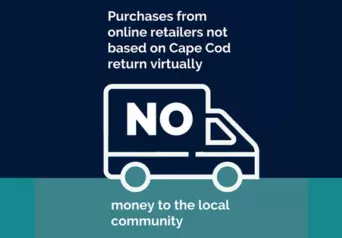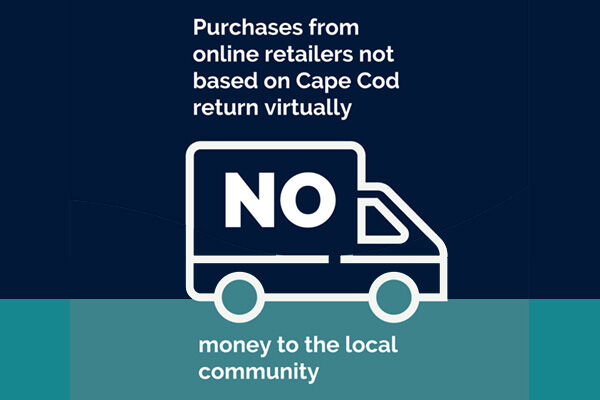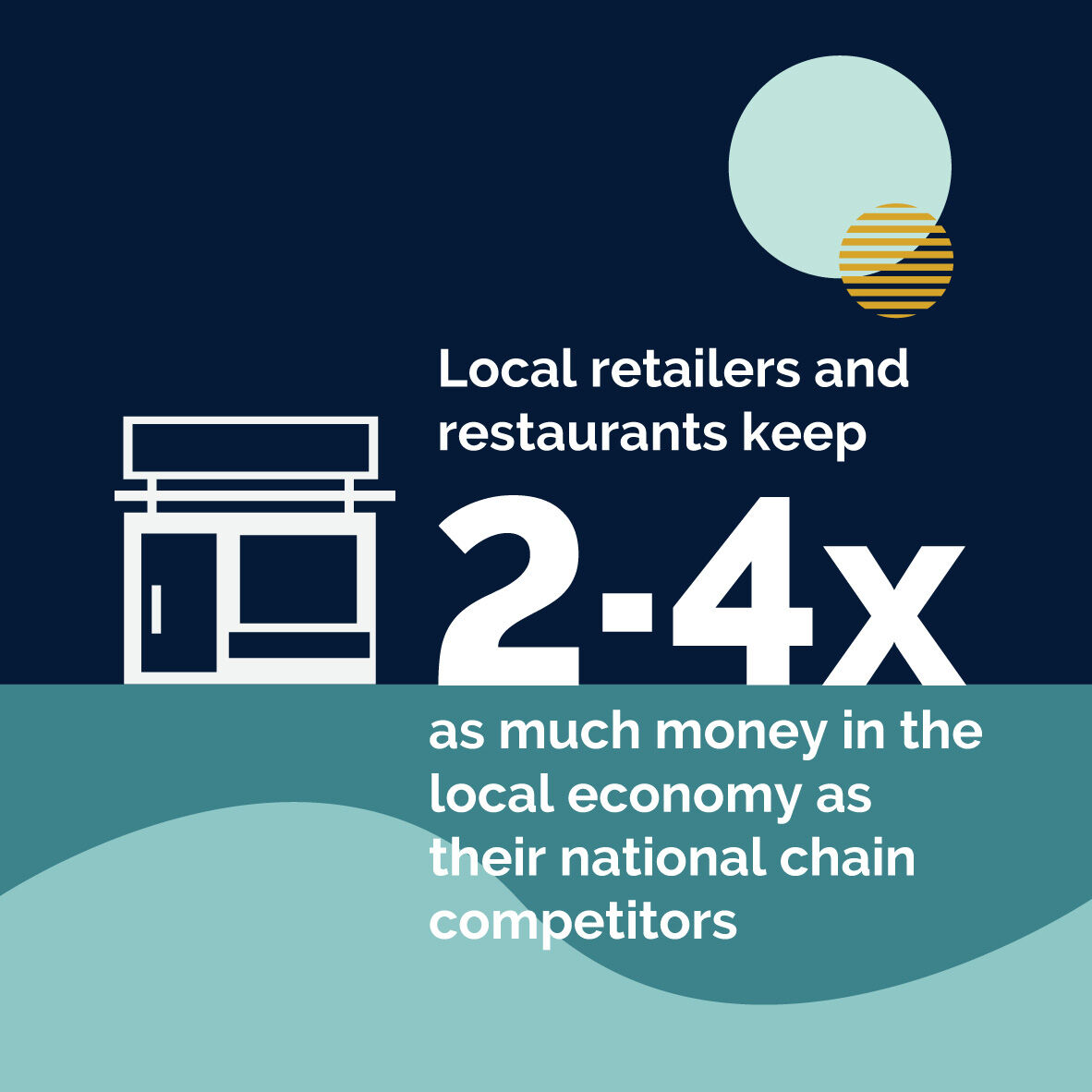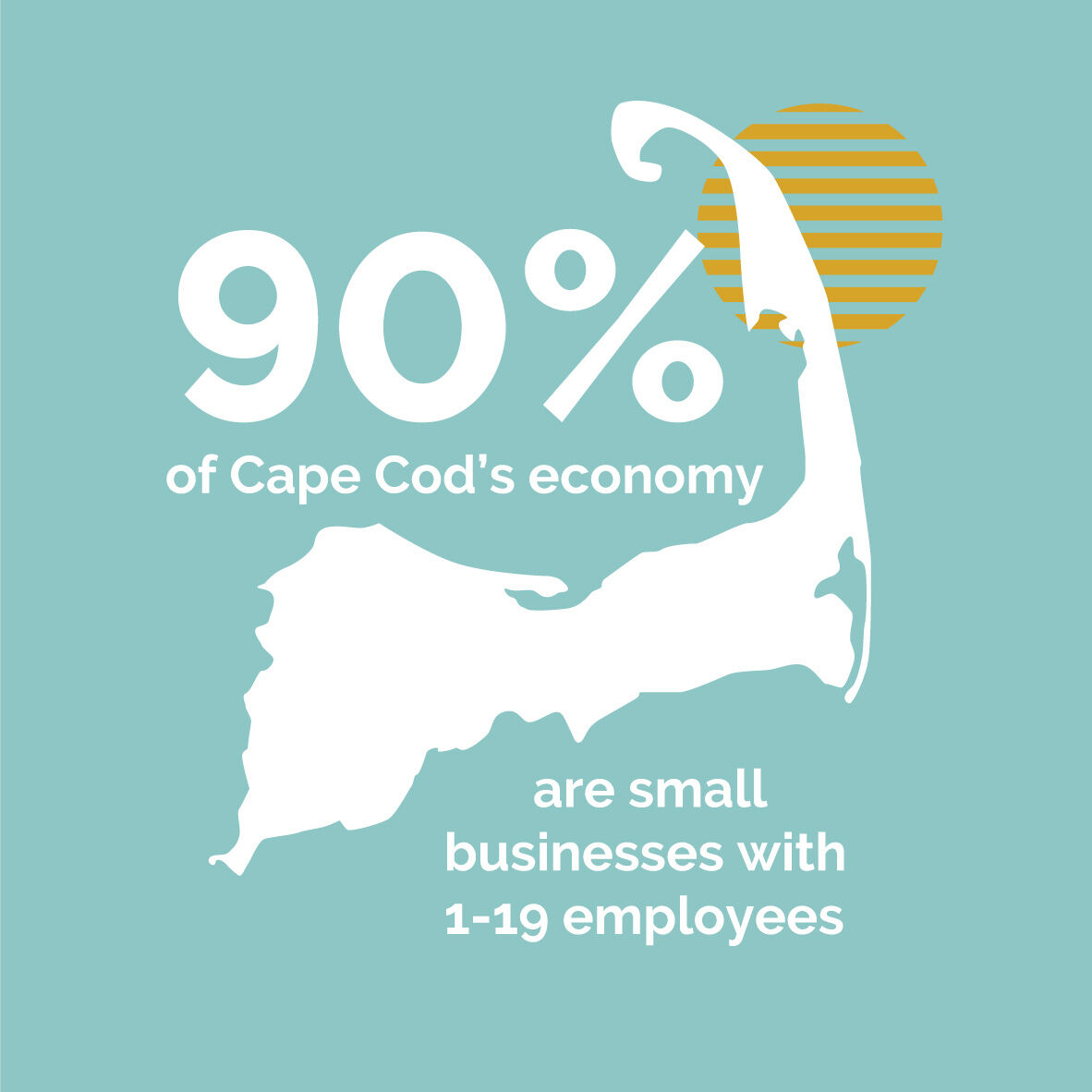Small Business Advocacy D.C. Decisions, Corporate Power + Cape Cod
Amazon's market dominance is hurting small businesses and the economy. Congress should break up Amazon to create a more level playing field for small, local businesses.

- Post Date
- Tue, Sep 1
- Small Business Advocacy
In late July, the four “big tech giants” testified in front of a Congressional subcommittee. Some, like Amazon’s Jeff Bezos, for the first time. Now, you may have missed it or dismissed its importance, because there’s a lot of pressing news constantly coming at us and it’s easy while living on Cape Cod to feel a bit detached from a lot of the goings-on in Washington D.C., but we kept a close eye on what transpired, because the policy recommendations that come out of that hearing will inevitably have an impact our small business community and local economy.

The purpose of the hearing was to explore the corporate power of Facebook, Apple, Google and yes, Amazon (our favorite punching bag) – how they got it and how they maintain it, and whether their business behavior is monopolistic in nature and intent, and therefore bad for innovation, certain segments of the population, small businesses and frankly, our economy overall.
For our part, we have explored how Amazon has acquired such a huge market share in a previous series of articles, but to sum it up for you: they did it through huge amounts of Wall Street investment, tax avoidance, using and abusing their workforce, exploiting smaller companies and anti-competitive behavior.
Bezos always tries to paint Amazon as the scrappy underdog who only captures a small percentage of the entire retail landscape, but the numbers paint a different picture. While this pandemic has caused 1 in 6 small businesses to close (so far) and the U.S. economy to shrink by 32%, Amazon’s astronomical earnings during this same time only prove that their market share is enormous, and growing.
Since their inception their aim has been to dominate – they have put countless numbers of small businesses out of business, starting with one independent bookstore at a time, and are now exercising a tighter grip. More than 60 percent of Americans start their search on Amazon when buying goods online and Amazon is the recipient of .40 cents of every dollar spent with an online retailer.

Sure, they have 3rd party independent sellers who offer products on the ecommerce platform, but some former sellers testified that they only saw a better return if they use Amazon’s distribution services (which Bezos admitted to), and if a product is popular, Amazon’s retail division just might make their own version of it – and sell it for less, essentially putting the seller out of business.
So, eventually, Amazon will own the platform, all the products for sale on the platform, as well as the network for the distribution of products (not to mention all of the data they are gathering on each and every person that shops and browses on their site). And if they become one of a few places to purchase consumer goods, they will then have the ability to set the price for those goods.
According to a new Federal Reserve Board report this type of concentrated market power is a very disturbing trend in the U.S. economy, leads to a decline in competition, fewer new jobs, and further income inequality. And if trends continue as they are there will be dire consequences on Main Streets and municipal tax bases across the country.

Cape Cod is not immune to these trends, and Amazon’s dominance is already having an impact on our local economy. In our Local Matters: Measuring Impact report, we estimated that Barnstable County generated $162 million of sales in 2019 for Amazon between their own sales and those of third-party merchants, and Amazon internet sales return virtually no money to the local community.
Additionally, we found that if Amazon’s online sales in Barnstable County had occurred in independent retailers, they would support 125 additional retail outlets and 1,739 additional jobs. What many small business advocates like us, legal scholars and economists like NYU Professor Scott Galloway are encouraging Congress to recognize is that “when all of the spoils are concentrated among an increasingly small number of firms, it makes for an unhealthy ecosystem and unhealthy economy,” and for people to know that breaking up national corporations like Amazon into smaller concentrated companies would not change what people like about Amazon.
It would instead give our small businesses a more level playing field on which to compete, allow for new entrepreneurial ventures, spark innovation, and create new jobs in an economy (national and local) that right now desperately needs all of it.
Related articles
- Post Date
- Sat, Aug 31
- Small Business Advocacy
- Post Date
- Wed, Aug 21
- Small Business Advocacy

